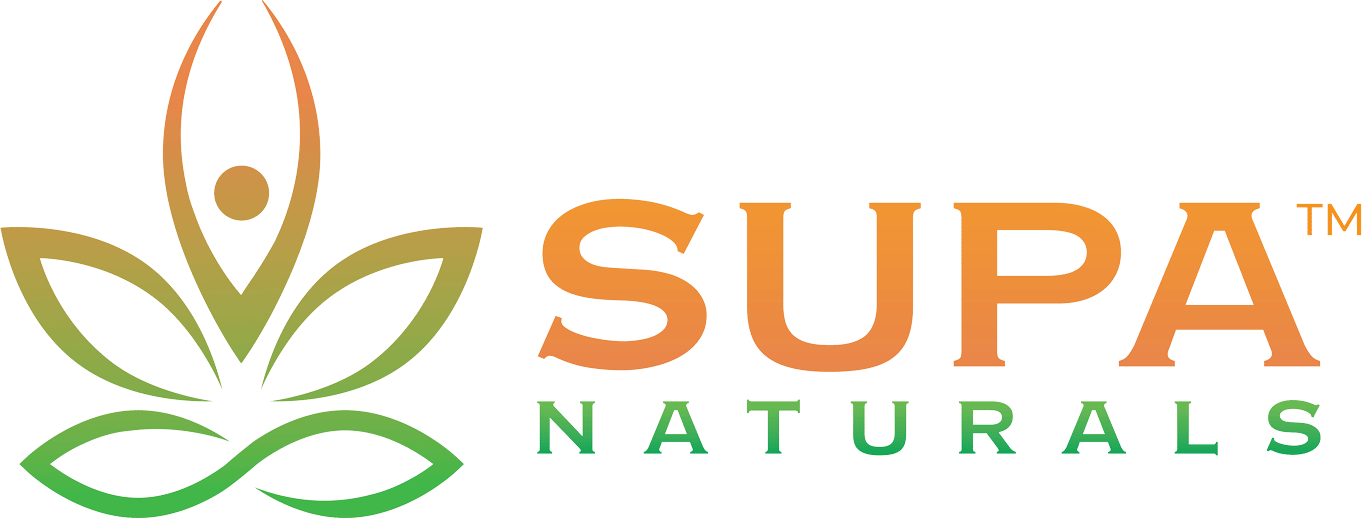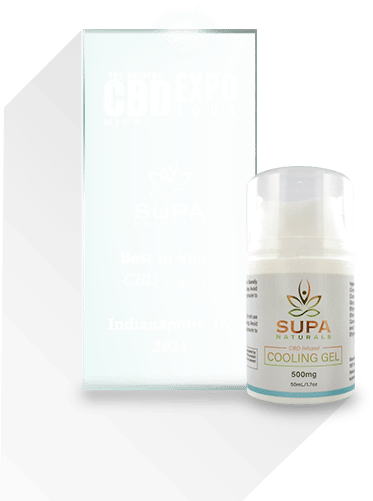Can Full Spectrum CBD Get You High?

CBD (cannabidiol) oil continues to gain popularity. It has been shown to have numerous benefits and comes in various formats, so many people are excited to jump on the CBD train as the health industry evolves. Since CBD comes from Cannabis sativa (traditionally cultivated for hemp products, but also for marijuana), you might be wondering whether CBD full spectrum can get you high.
The short answer is no, full-spectrum CBD won’t get you high.
Most CBD products contain little to no THC (Tetrahydrocannabinol), the popular cannabinoid known for its psychoactive effects. Many people confuse CBD with its counterpart, but while both compounds naturally occur in cannabis plants, these are inherently different.
THC makes you feel the high often associated with smoking or consuming marijuana, and CBD doesn’t. The traces of THC in the CBC full-spectrum products won’t be enough to produce the ‘high’ effects that you have in mind, but both share some benefits.
CBD might help you feel less anxious or calmer and more relaxed. It may even help you fall asleep. Full-spectrum CBD is even more effective, providing trace THC’s soothing qualities without the unwanted “stoned” effect or classic “high.”
What Are the Different Types Of CBD?
Before we dig deeper into full-spectrum CBD, it’s crucial to understand the basics of cannabis pharmacology. Understanding the various forms will also help you make a more informed choice about your next CBD purchase.
CBD is one of the hundreds of compounds found in cannabis and hemp. If you’ve shopped around for CBD products, you may have come across full-spectrum, broad-spectrum, and isolate CBD. These are the main types on the market, and each CBD version has significant differences.
CBD Full Spectrum
Full-spectrum CBD supplements contain most of the compounds naturally found in cannabis. It is made up of whole-plant cannabis extract, which includes all other cannabinoids (besides terpenes and CBD).
It’s important to know that all cannabis plants contain THC in its natural form. For example, hemp typically produced for commercial purposes contains a maximum of 0.3% THC. That means any CBD full spectrum supplements will contain some concentration of THC, even if it’s made from legal, industrial hemp.
However, full-spectrum supplements will only have trace amounts of THC. The concentration is far too low to have any intoxicating effects on the body, even if you take high doses of CBD products daily.
Broad-spectrum and Isolates
Broad-spectrum CBD supplements contain all the cannabinoids and terpenes you would naturally find in cannabis, except for THC. That is the only main difference between full and broad-spectrum CBD products.
CBD isolates contain only CBD, which has been isolated from the other natural compounds in the cannabis source.
Will Taking Full Spectrum CBD Products Make You Fail a Drug Test?
When it comes to CBD products, drug tests can be a tricky subject. Many people undergo spontaneous drug tests as part of their job or post-addiction requirements. If this applies to you, you may be worried about failing a drug test due to using CBD full spectrum products that contain trace amounts of THC.
Drug tests work by screening for particular THC metabolites. Most of these tests have a threshold (below which the reading comes up as negative). For example, for your urine test to produce a positive drug test reading, you would have to take much more than a regular dose of CBD oil.
If you are not sure, check with your medical professional before committing to a product.
Forms of CBD

CBD comes in various forms. Each is slightly different, although some may have similar effects.
Oils and Tinctures
CBD-infused oils are popular because they’re easy to take and absorbed into the body (you’ll feel the effects quickly).
CBD oils are great for people who want to try CBD but don’t want to take pills. These products are typically placed under the tongue (sublingual application) using a dropper.
SUPA Naturals offers full-spectrum CBD tinctures, where the CBD is blended with hemp oils, grapeseed, and coconut to provide enhanced health benefits. It’s available in mint and natural flavors. In addition to full-spectrum CBD tinctures, SUPA Naturals also offers THC-Free Water Soluble CBD Tinctures. Water soluble tinctures offer higher bioavailability. Higher bioavailability means that it has a much easier time absorbing into the body!
Pills and Capsules
You take CBD pills and capsules just as you would any other medication. It may help with several issues, including sleep deprivation, seizure disorders, and digestive problems. The main difference between pills and oils is that the former takes longer for your body to absorb.
- SUPA Naturals’ full-spectrum CBD capsules are fully compliant with applicable state and federal laws.
- Each vegan capsule cell contains a precise dose of CBD dissolved in coconut oil.
Lotions and Creams
Some CBD-infused lotions and creams help to relieve joint and muscle pain. Although there isn’t much scientific evidence, proponents claim benefits against various skin problems, such as acne or eczema. Some mainline skincare products even contain CBD.
- SUPA Naturals’ full-spectrum topical products support muscles and joints using only plant-based ingredients. You won’t have to worry about an oily residue on your skin.
Edibles
CBD gummies have become quite popular as the benefits have emerged on mainstream platforms. You can now find edible CBD in cookies, chocolates, candy, and even alcoholic beverages, like beer and wine.
- SUPA Naturals’ full-spectrum CBD gummies are made with only natural ingredients, which is why these sweet delights sport a delectable citrus flavor.
Vaping
Inhaling vaporized CBD oil is one of the fastest ways to experience the effects of CBD. Vaping sends the CBD full spectrum oil directly into your bloodstream, so your body absorbs it quickly via vape pens or e-cigs.
CBD vs. THC
Both THC and CBD affect the cannabinoid Type 1 receptors (CB1) in your brain, but each has varying effects. THC binds with the CB1 receptors, activating them (which is why you have that euphoric feeling).
CBD barely binds with CB1 receptors in comparison. CBD may even block you from feeling that high. If you were to take CBD with THC, you probably won’t feel as high as you would if you’d consumed only pure THC products.
High concentrations of CBD (or more than the recommended dose) could give you an uplifting effect, but that’s not the same as a typical THC high.
Generally, CBD is considered safe and well-tolerated, but people have slightly different reactions, so your experience may not match another’s nor remain the same each time. You might consider trying a few different products before settling on what makes you feel best. You could also experiment with the delivery system (like oils, capsules, edibles, and vaping).
High doses of CBD cause some side effects, including dizziness and nausea. It’s important to take the recommended dosage and no more. Some people even experience fatigue, changes in weight and appetite, and a dry mouth.
Always seek expert advice before changing doses.
Health Uses and Effects Of CBD

Much research on CBD products has shown several positive effects. Some findings even suggest it may help you feel calm and relaxed—a bit like a high, but not at all intoxicating.
Easing Anxiety and Depression
Research also suggests CBD helps to relieve symptoms of anxiety and depression. For example, specific doses of CBD can be effective at easing tension before a test.
A 2016 study also revealed the benefits of CBD products for children. According to the findings, CBD oil can safely be used to relieve insomnia and anxiety in children experiencing PTSD (Post-traumatic Stress Disorder).
Some people take CBD products and supplements for better sleep. A 2019 study showed that 66.7% of its participants reported sleeping better after taking CBD, though the team could not pinpoint an exact reason for the effect. Some speculated that it could be because CBD eases stress, depression, and anxiety, which promotes a more restful night.
CBD also affects how your brain responds to serotonin. It has antidepressant-like effects, even reducing stress-related depression.
Relieving Pain and Inflammation
CBD also eases pain and inflammation, which could be one of the primary reasons that marijuana is effective against pain relief. Research on animals has shown that CBD could reduce inflammation and ease sciatic nerve pain or pain from surgical incisions.
When combined with THC, the CBD is more effective in easing pain caused by arthritis and multiple sclerosis. SUPA Naturals’ full spectrum products take advantage of this ‘Entourage’ effect.
Alleviating Cancer-Related Symptoms
CBD helps to relieve some side effects of chemotherapy and cancer-related pain, including vomiting and nausea. Some cancer studies found significant pain reduction evident when CBD and THC were combined for this type of use.
Reducing Acne
Since CBD reduces inflammation, it might also help to reduce acne. CBD oil has been shown to prevent sebaceous glands from releasing too much sebum (which causes acne) and prevent reactivation effectively.
There’s still plenty of research in motion, but proponents have high hopes that CBD could be shown to help with other skin issues, too.
Boosting Heart Health
CBD might also benefit the circulatory system (and the heart) by controlling high blood pressure. It is a significant benefit that would help prevent severe health problems, such as metabolic syndrome, heart attacks, and strokes.
One explanation is that CBD relieves anxiety and stress, which in turn, lowers blood pressure. Another school of thought also suggested that CBD might reduce cell death (associated with heart disease and reduce inflammation).
The Treatment of Substance Use Disorder
CBD has also shown promise in treating substance use disorders. It can change the circuits in the brain related to drug dependence, reducing heroin-seeking behavior and morphine-dependence in rats, for example.
CBD use is also an effective way for doctors to help people with schizophrenia, where they can avoid the adverse side effects of antipsychotic medication.
Research into a hemp and cannabis-derived CBD continues to expand. Soon, healthcare providers and medical professionals will have a better understanding of how CBD works and who might benefit most from its applications.
Help with Neurological Disorders and Seizures
Those with a history of epilepsy may also find relief from seizures when using CBD. In 2018, the FDA approved the first CBD-based drug for treating seizures.
Other studies have shown that CBD may improve sleep and quality of life for people with Parkinson’s disease.
Test-tube and animal studies have also had encouraging results with Alzheimer’s disease, partly for CBD’s tendency to prevent neurodegeneration and decrease inflammation that accompanies the disease.
Is It Legal to Use CBD Products?

When Congress lifted the prohibition of hemp plants in 2018, hemp-derived CBD became legal in the United States (unless outlawed at the state level).
The law requires that CBD products have no more than 0.3 percent THC.
States where medical and recreational marijuana is available to have marijuana-derived CBD (where the CBD to THC ratios will vary by product).
Check your state-specific laws regarding CBD before you purchase any products—there are slight differences in regulations, especially regarding the ingredients.
Takeaway
CBD can be extracted from the cannabis plant, but it doesn’t have the same euphoria or high as THC (found in traditional marijuana). CBD may help you feel less anxious or relaxed, but using a CBD-infused tincture, oil, lotion, or other product won’t get you high.
Using CBD full-spectrum products that have higher traces of THC may even dull the high as the two cannabinoids work together for the “Entourage” effect.
Before using any THC product, be sure to consult a trusted medical professional. CBD may interact with some medications, so it is critical to talk to your healthcare provider before embarking on a new CBD regimen.
If you’re interested in trying it, consider trying CBD full-spectrum products. It will maximize the health benefits you derive from all the compounds present, not only the CBD.
Compounds found in full-spectrum CBD products include terpenes, flavonoids, fiber, chlorophyll, fatty acids, and proteins. Our full spectrum products allow access to all the benefits of cannabis as a whole plant, without the “high” commonly associated with the marijuana or THC found in cheesy teen dramas.
SUPA Naturals CBD Full Spectrum Products
CBD is gaining popularity, so it’s easier to find, but be sure to go for premium quality CBD full-spectrum products. You want to source only high-quality CBD products from a reputable brand like ours for great CBD products and multiple health benefits.
With us, you will see each CBD full-spectrum product tested for quality purposes. SUPA Naturals’ mission is to help as many people as possible live a superb life by providing high-quality CBD products.
All SUPA Naturals products derive from organically grown, non-GMO American hemp.






